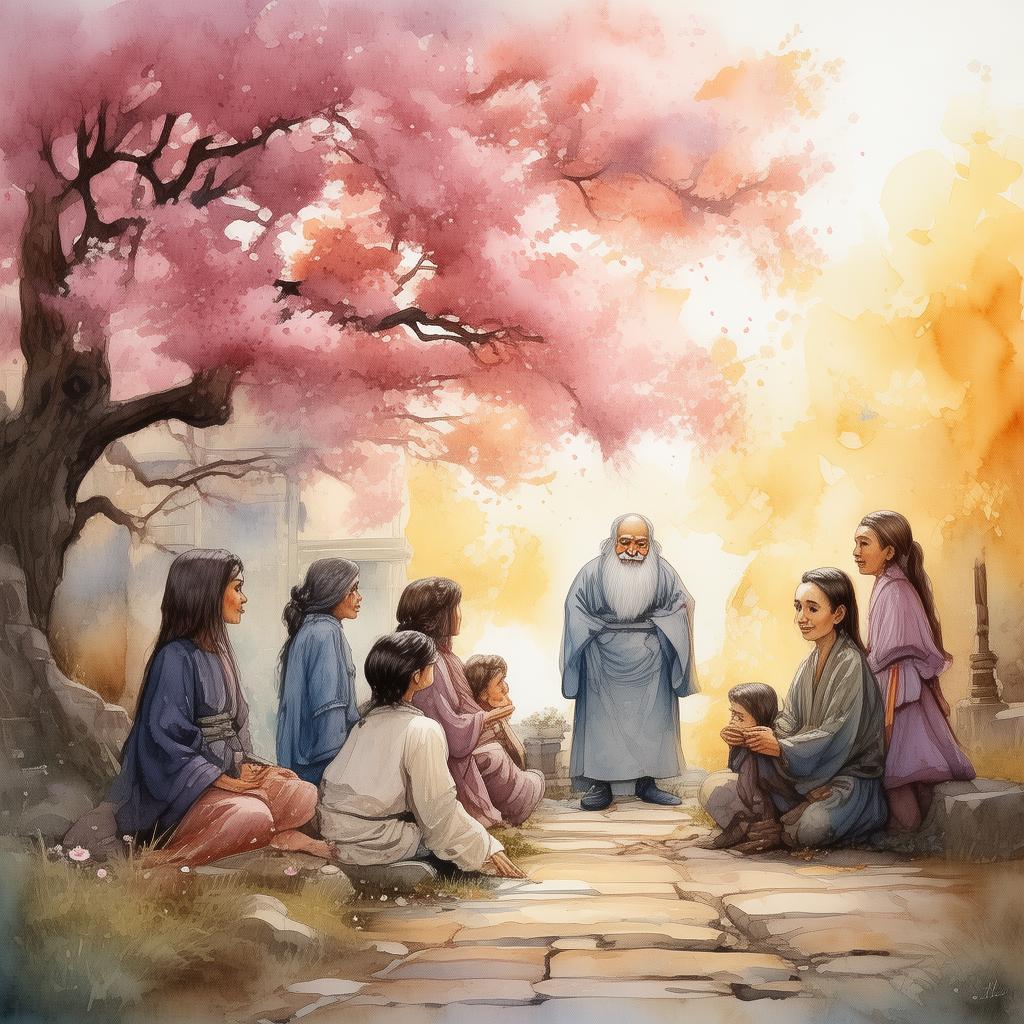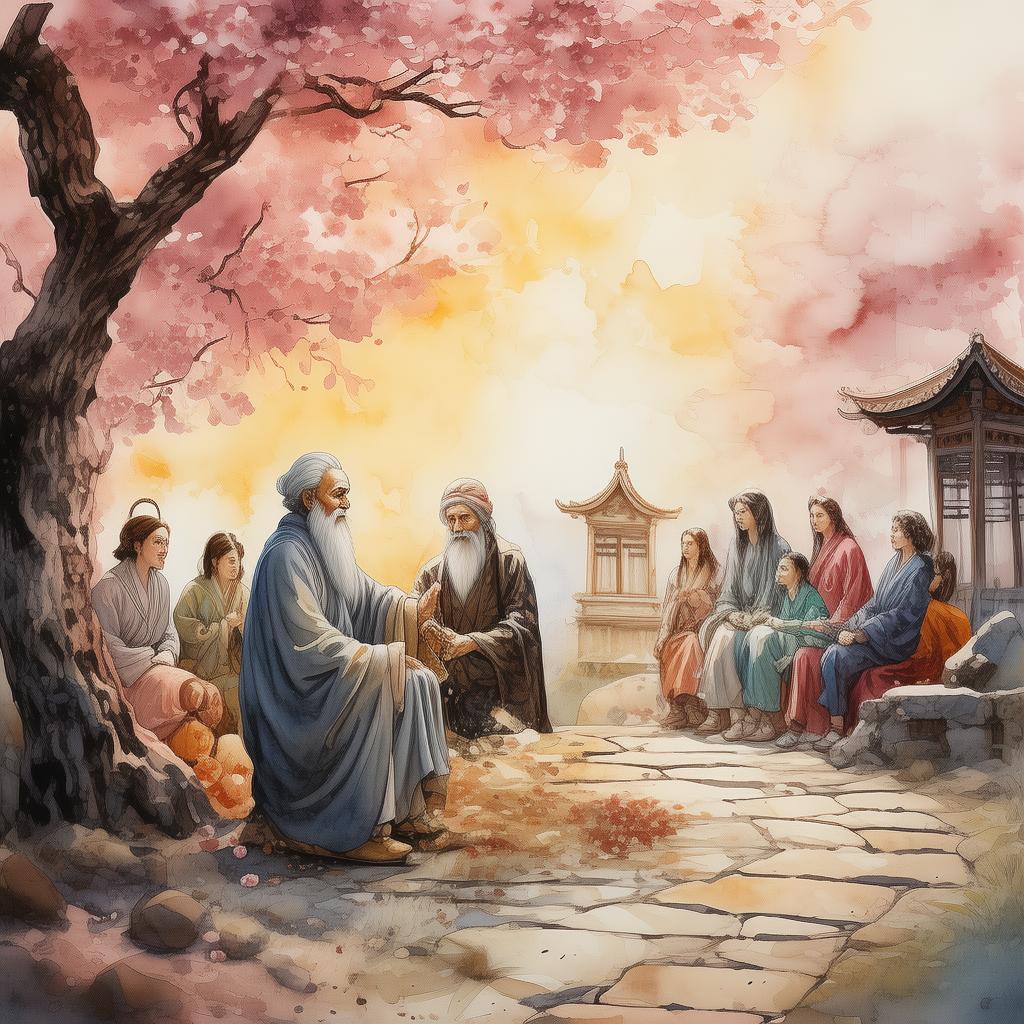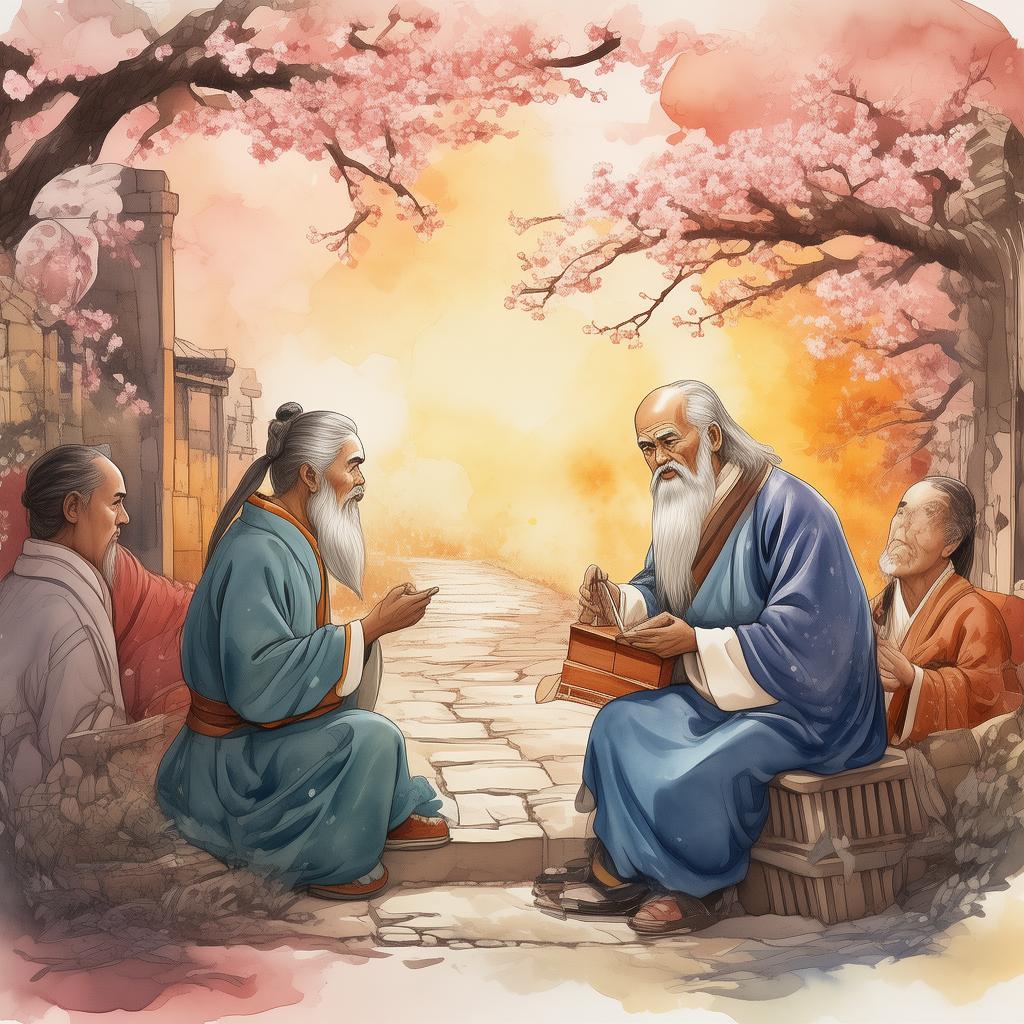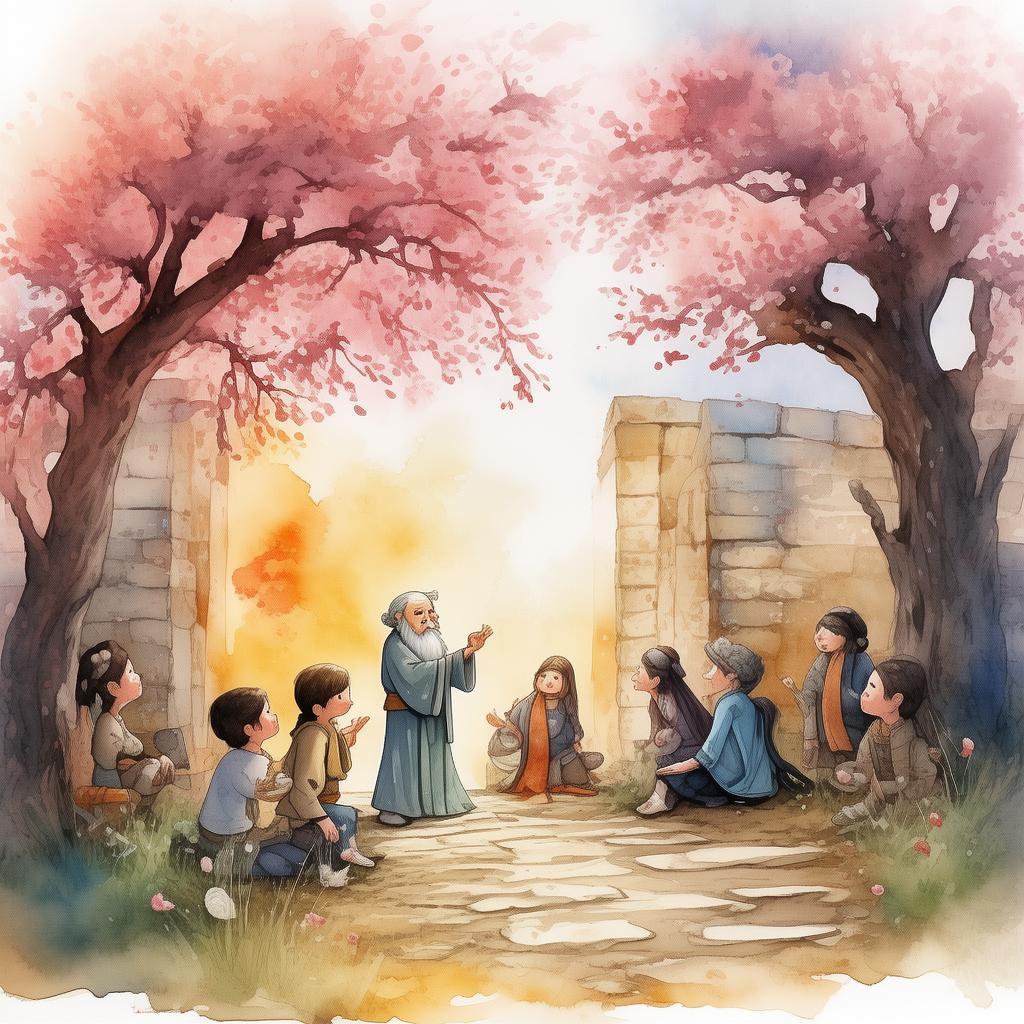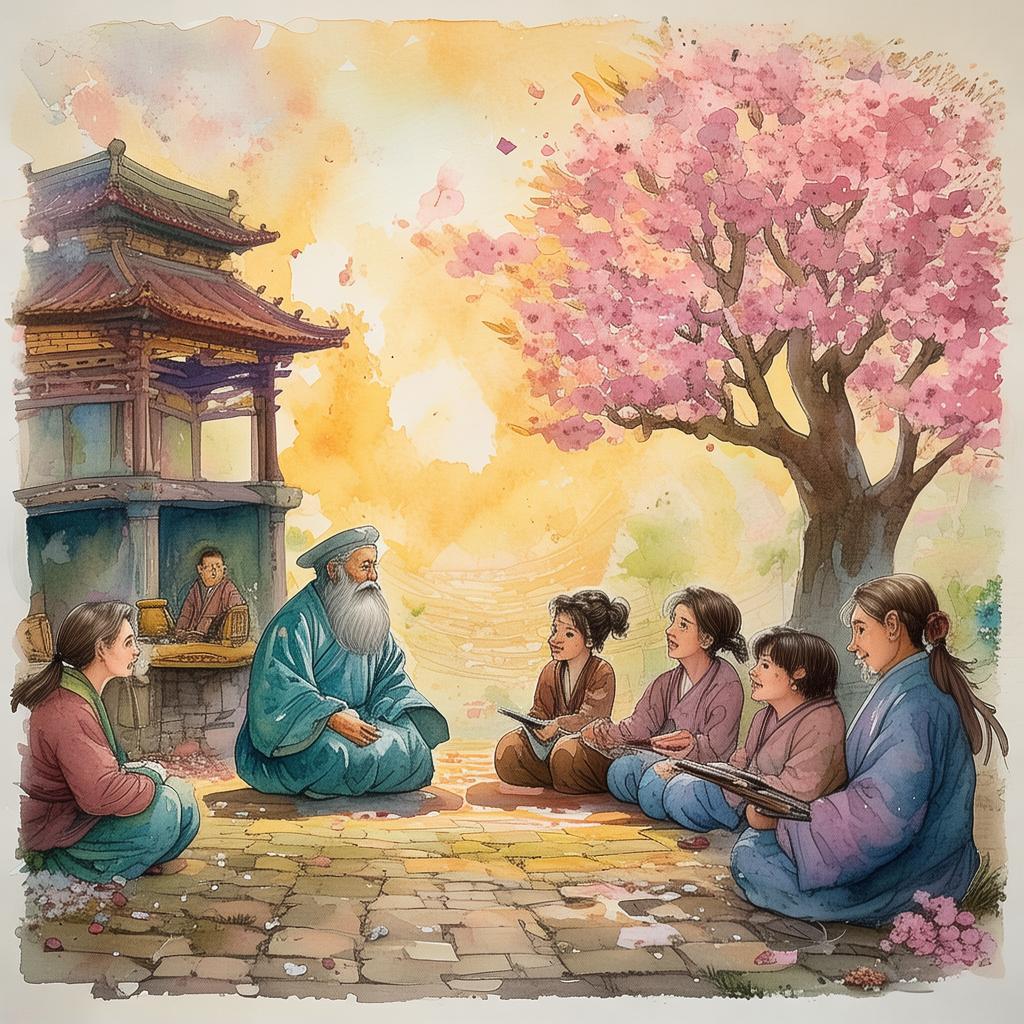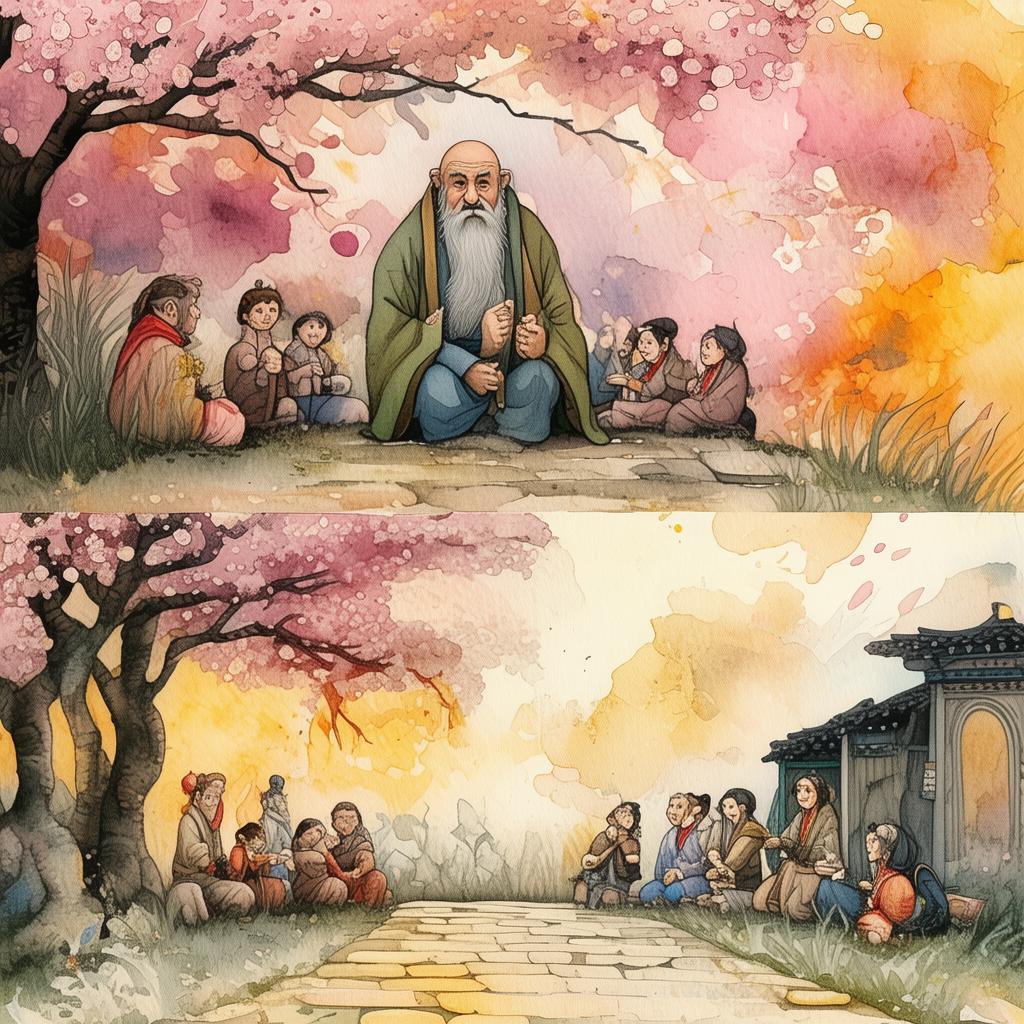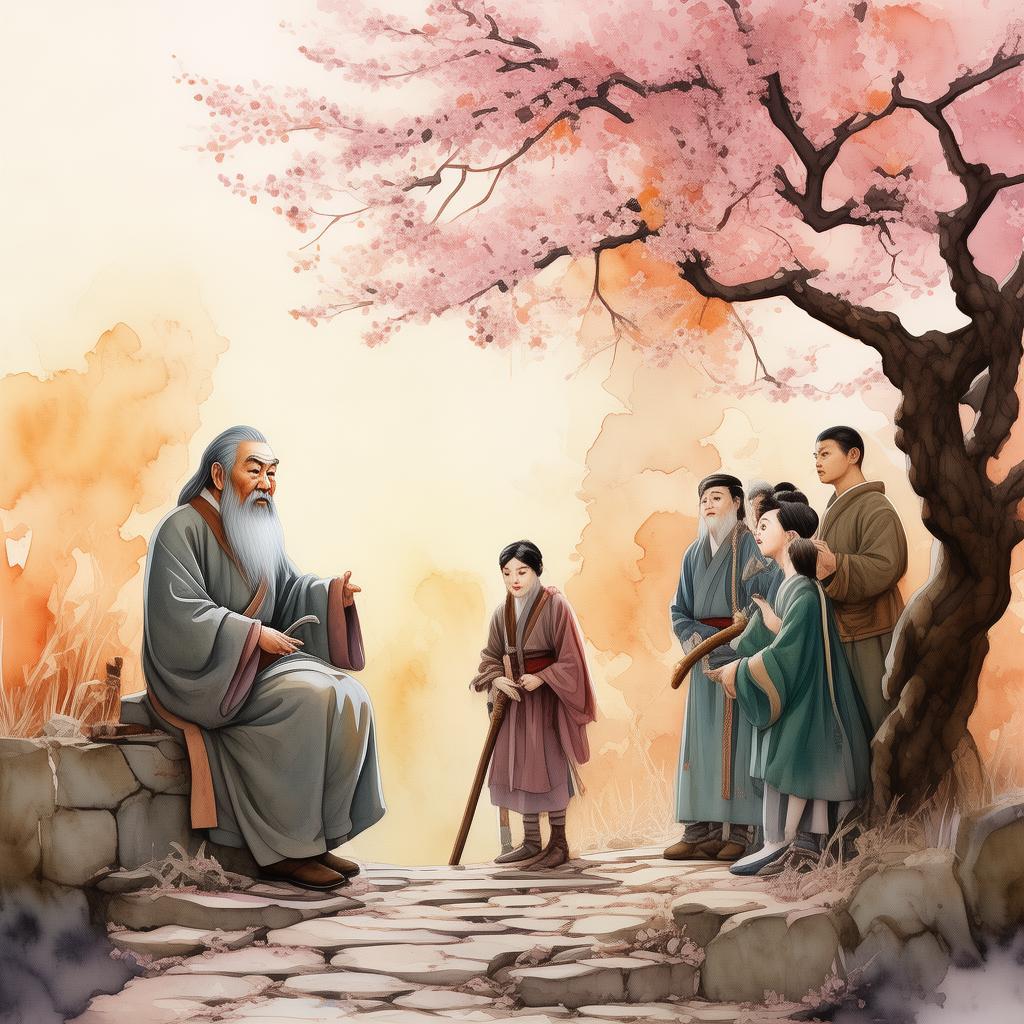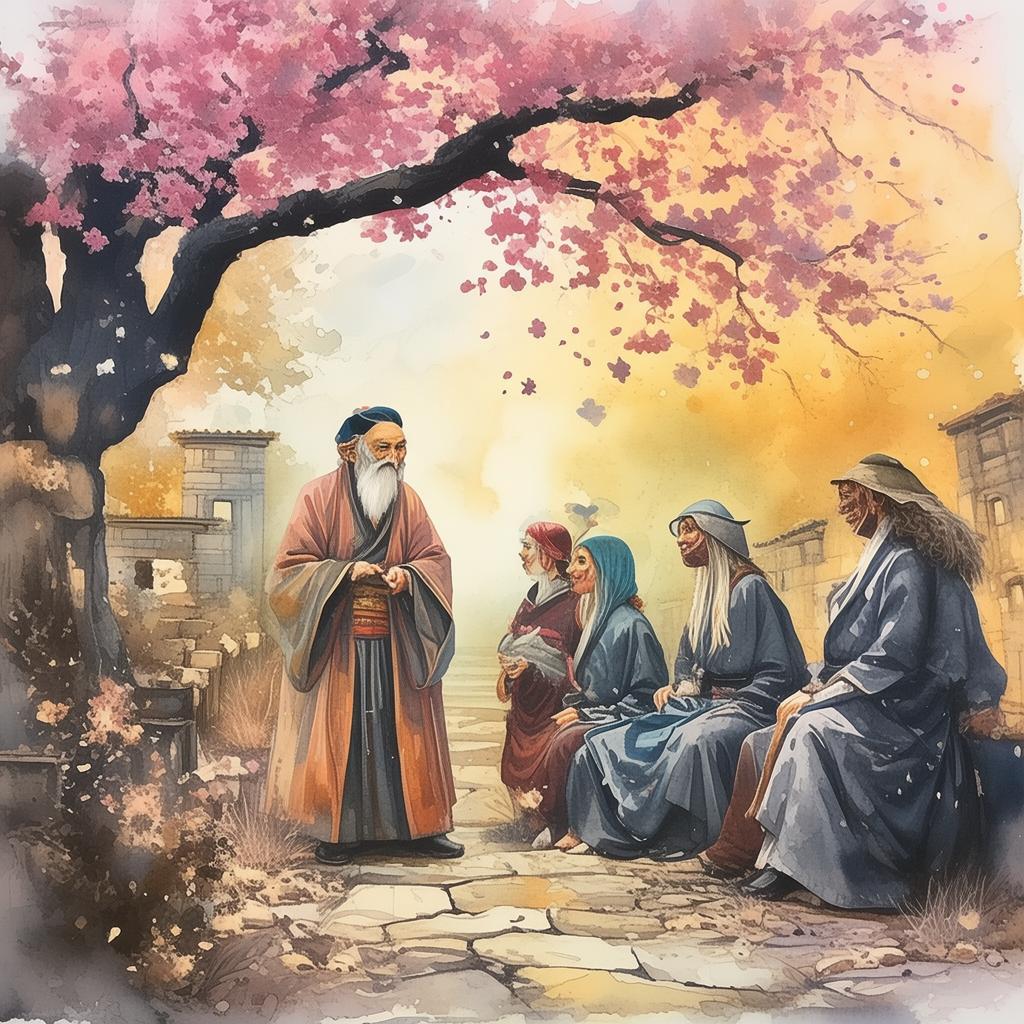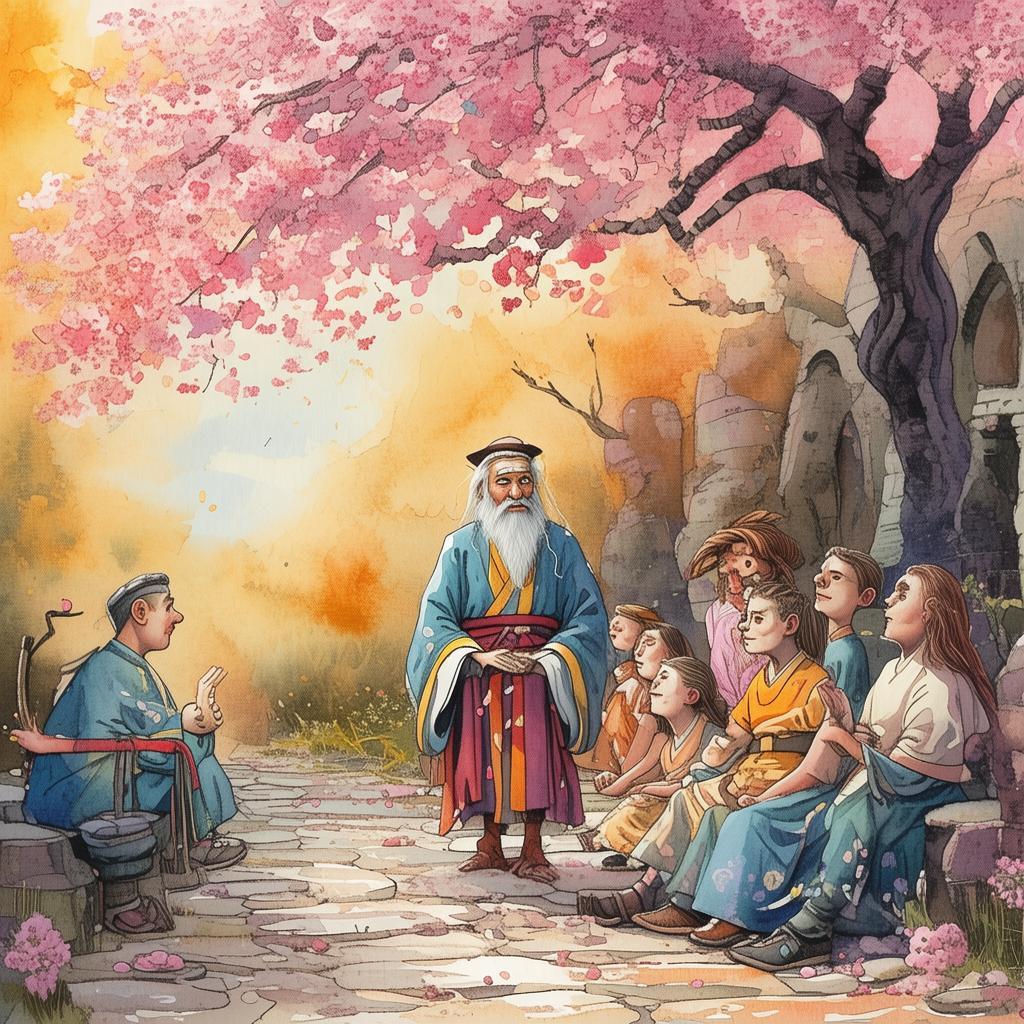The Emperor's Pawn: The Art of Deception
In the ancient kingdom of Tianxuan, there lived a strategist named Yu, renowned for his unparalleled intellect and cunning. His prowess was so great that he was often likened to a pawn on the chessboard of fate, a piece that could be moved to any position, capable of influencing the outcome of the game. This tale is about how Yu, the Emperor's Pawn, manipulated the pieces of the game of state's favor to achieve his own ambitions.
The kingdom was at the brink of war with its neighboring rival, the Kingdom of Fenglin. The Emperor of Tianxuan, wise but indecisive, sought the counsel of his most trusted advisor, the Grand Minister, who had always been his right-hand man. However, the Grand Minister had grown tired of his position and was plotting to seize the throne for himself.
Enter Yu, a young strategist with a reputation for his strategic prowess. The Emperor, desperate for help, sent for Yu, who arrived with a plan so daring that it was almost impossible to believe. He proposed a series of intricate moves that would turn the tide of the war without lifting a sword.
The first move was to plant a spy within the enemy's ranks. This spy, a trusted and loyal subject of Fenglin, was to be convinced to betray his kingdom. Yu knew that the key to success was to understand the enemy's weakness and exploit it.
Next, Yu proposed a peace treaty, a move that would catch both the Emperor and the Grand Minister off-guard. He convinced the Emperor that the peace treaty would be a strategic advantage, allowing Tianxuan to consolidate its power while the enemy was weakened by internal strife.
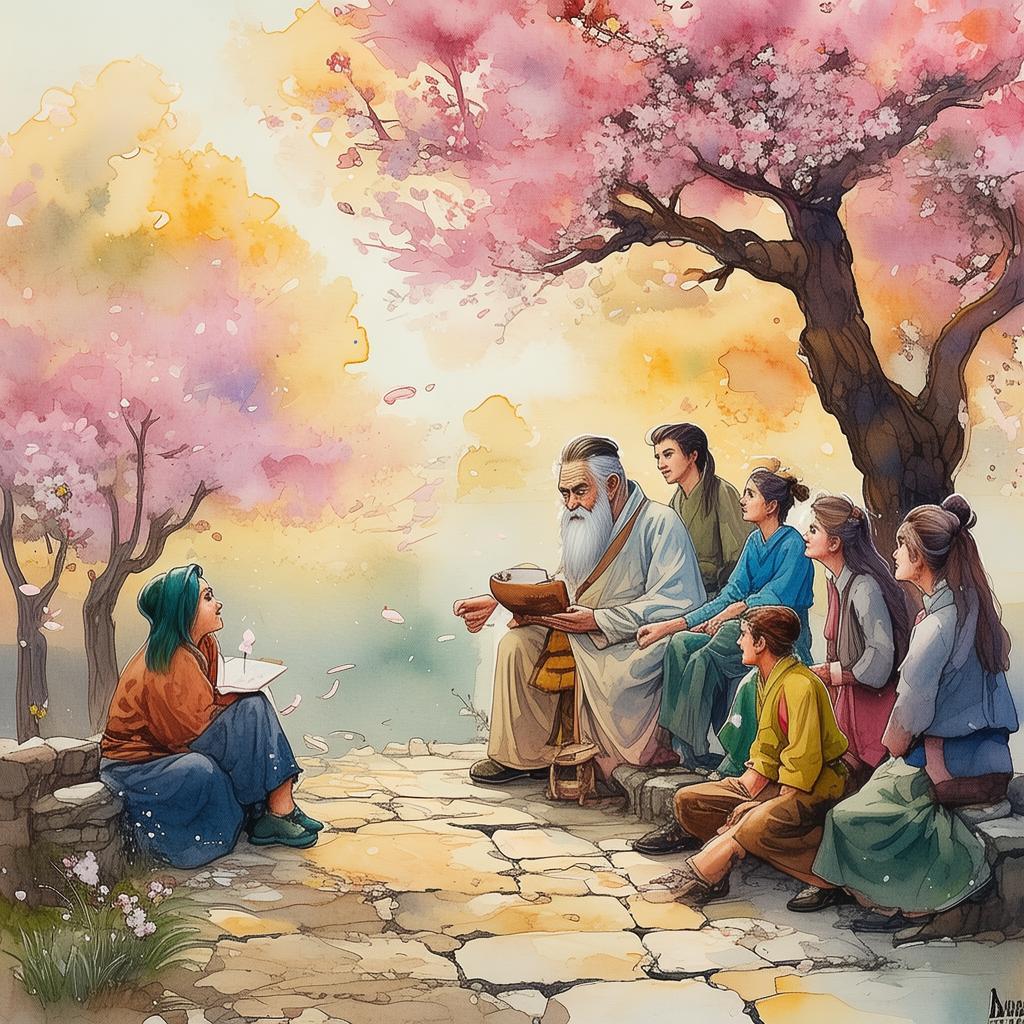
The Grand Minister, however, saw the peace treaty as a threat to his ambitions. He believed that the Emperor's trust in Yu was a sign of his weakening grasp on power. So, he devised a plan to frame Yu for treason, hoping to eliminate the strategist who posed the greatest threat to his aspirations.
As the plot unfolded, Yu navigated the treacherous waters of court politics with the same precision as a chess master. He used his knowledge of the Grand Minister's past misdeeds to threaten him into silence, ensuring that the peace treaty would be accepted by the Emperor.
The spy within Fenglin's ranks succeeded in his mission, providing Yu with invaluable intelligence. He used this information to outmaneuver the enemy, leading to a series of victories that seemed too good to be true. The enemy was confused and demoralized, and the peace treaty was signed without any resistance.
The Emperor, pleased with Yu's success, promoted him to the Grand Minister's position. Yu now held the power to influence the kingdom's destiny, but he knew that the Grand Minister was not finished with him. He had to be careful, for the Grand Minister's revenge was inevitable.
As the peace treaty was celebrated, Yu's thoughts were elsewhere. He realized that his loyalty had always been to himself, and that the Emperor's Pawn was just a title he had adopted to achieve his true goal: power. He had manipulated the game of state's favor to reach the top, but now he had to ensure that no one would ever take it away.
The night before the peace treaty was to be signed, Yu met with the spy, who had become his closest confidant. "Remember, the game is never over," Yu said, his voice laced with a hint of danger. "The Grand Minister will not rest until he has you and I both out of the way."
The spy nodded, understanding the gravity of the situation. "Then we must be ever-vigilant," he replied.
As the sun rose over the kingdom, the peace treaty was signed, and Tianxuan was at peace. But beneath the surface, the game of state's favor was far from over. Yu, the Emperor's Pawn, had just begun his greatest challenge yet.
Yu's rise to power was a testament to his cunning and intellect, but it was also a reminder of the cost of ambition. In the end, he had to choose between loyalty to the kingdom and loyalty to his own desires. The true cost of his actions would only be revealed as the kingdom moved forward, with Yu as its Grand Minister, the Emperor's Pawn who had turned the tide of war but had also set in motion a chain of events that could change the very fabric of the kingdom.
In the game of state's favor, Yu had learned that the true power lay not in the position one holds, but in the ability to outsmart one's enemies and stay one step ahead. As the kingdom moved towards a new era, Yu remained the Emperor's Pawn, but the pawn had learned to play the game of his own design.
✨ Original Statement ✨
All articles published on this website (including but not limited to text, images, videos, and other content) are original or authorized for reposting and are protected by relevant laws. Without the explicit written permission of this website, no individual or organization may copy, modify, repost, or use the content for commercial purposes.
If you need to quote or cooperate, please contact this site for authorization. We reserve the right to pursue legal responsibility for any unauthorized use.
Hereby declared.
